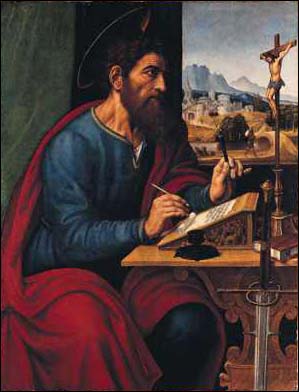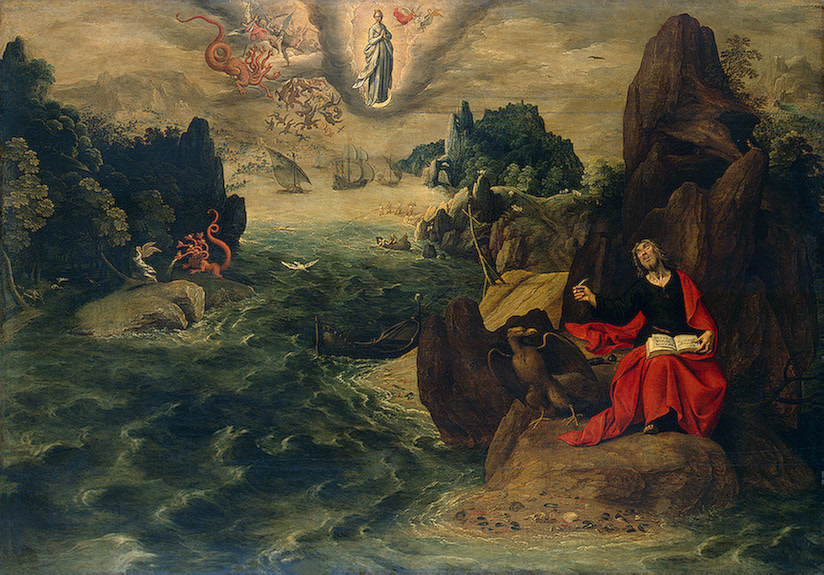How come we don't memorize more of the Bible?
Why don't we have more expository preaching?
How can you believe such&such when it clearly says this&that right here!
Sometimes the confusion leads to good, open conversation. Sometimes I've been verbally slapped around and condemned because I'm not in agreement. So let's take a look at ways in which Episcopalians might be just a bit different from some others.
 Holy Scripture vs. Holy Bible - One reason we use the term "Scripture" so often (we say "Bible" also) is because the Bible itself never refers to itself as "Bible". The term Bible came from the Greek ta biblia, meaning "the books". And Scripture means "writings". Today, many Christians perceive the Bible as one book with one single author, namely God. However, the sense in both terms, Bible and Scripture, is plural. That is to say, early Christians recognized that the Holy Scriptures were not a single work, but a collection, a literary body with many parts and voices written during differing time periods in different cultural contexts with varying values and priories.
Holy Scripture vs. Holy Bible - One reason we use the term "Scripture" so often (we say "Bible" also) is because the Bible itself never refers to itself as "Bible". The term Bible came from the Greek ta biblia, meaning "the books". And Scripture means "writings". Today, many Christians perceive the Bible as one book with one single author, namely God. However, the sense in both terms, Bible and Scripture, is plural. That is to say, early Christians recognized that the Holy Scriptures were not a single work, but a collection, a literary body with many parts and voices written during differing time periods in different cultural contexts with varying values and priories.
A Choir vs. A Single Author - The diversity contained in the Books of the Bible doesn't typically trouble Episcopalians. Why? For one it reflects our experience of reality. The world is diverse and God made it that way. Second, we don't believe God authored Scripture. No. Seriously. God didn't sit down and pick up a pen and write this stuff down for us. Instead we believe that God inspired human authors to write it. Now, whatever "inspired" means, it's not the same as "dictated to". The Scriptures tell us that God seems to desire human partnership, not automatons. God + Adam = Eve. God + Moses = Ten Commandments. God + Mary = the Messiah is born. Take a look. God isn't afraid to partner with us.
As a result, we don't expect the Bible to read as though it had only one author. It's not a solo performance; it's more like a choir. And if you have ever listened to jazz or modern classical you know that unison, harmony, and dissonance all have there proper place. And that in their proper place, they make for a wonderful, very expressive whole. The Bible is enriched as much by it's apparent dissonances as by it's moments of harmony and unison.
 St. Paul says... vs. First Corinthians says... - Episcopalians will often say St. Paul says this or St. John says that instead of quoting the book, chapter and verse. Why? First because the authors of Scripture were real people and because those people aren't strangers to us. We remember them in the Tradition of the Church and we know them by their presence within the Body of Christ.
St. Paul says... vs. First Corinthians says... - Episcopalians will often say St. Paul says this or St. John says that instead of quoting the book, chapter and verse. Why? First because the authors of Scripture were real people and because those people aren't strangers to us. We remember them in the Tradition of the Church and we know them by their presence within the Body of Christ.
Second, its because we often group the books of the Bible by their authors, recognizing common themes within those bodies and contrasts between works of different authors. This helps us understand some of the unity of Scripture in the midst of its diversity.
Stories vs. Conclusions - Finally, Episcopalians are more likely to talk about one of the stories from Acts or the Gospels, or speak of a metaphor like Paul's "Armor of God" or the "Body of Christ", or refer to visual images like those contained in Revelation. This we tend to do more often than referring to verses of exhortation like, "For all have sinned and fallen short of the Glory of God" (Rom. 2:23) and "believe on the Lord Jesus Christ and you will be saved" (Acts 16:31). Instead, we tend to use Scripture to open us up to what God has to say to us rather than to arrive at a formulaic conclusions and pat answers. We like to open doors and search for Holy Spirit's leading and are dubious about short quotations that don't convey the full context. And besides... stories are easier to memorize!
A Conclusion
 |
| St. John depicted writing on the Isle of Patmos |
